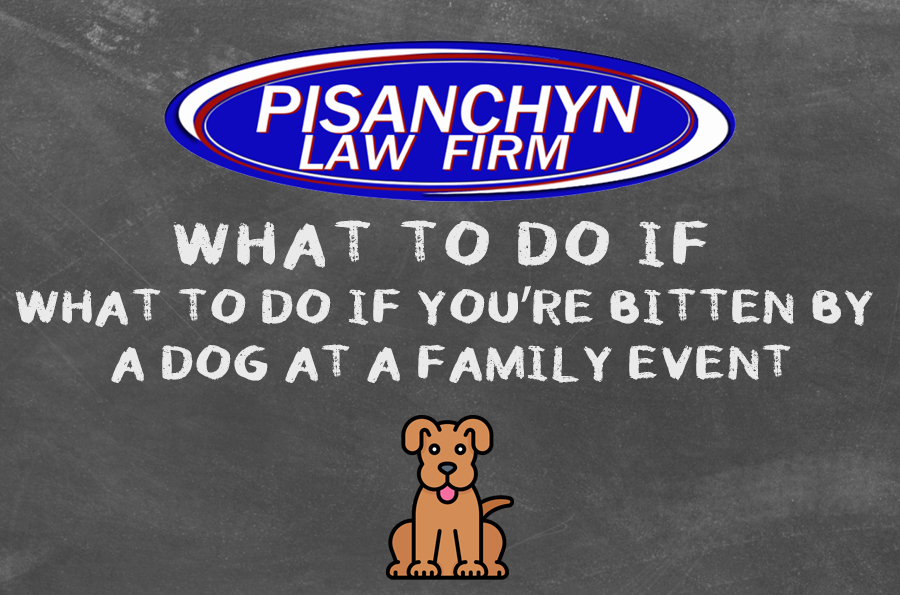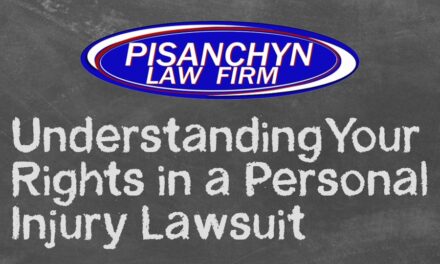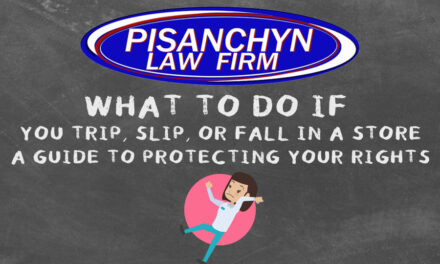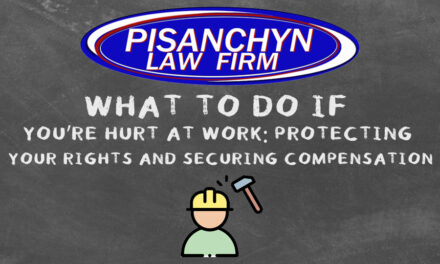Dog bites are always traumatic, but when they happen at a family event, the situation becomes even more complicated. You might feel torn between addressing your injury and preserving family relationships. At The Pisanchyn Law Firm, we understand how emotionally and physically challenging this situation can be. Our goal is to help you navigate these challenges while ensuring you get the justice and compensation you deserve.
In this guide, we’ll explain the steps you should take if you’re bitten by a dog at a family gathering, the legal options available to you, and how we can help you move forward.
Immediate Steps to Take After a Dog Bite
No matter where or when a dog bite occurs, your health and safety should be your top priority. Here are the essential steps to follow:
1. Prioritize Your Health
- Clean the wound: Immediately wash the bite with soap and warm water to reduce the risk of infection.
- Stop the bleeding: Apply gentle pressure with a clean cloth or bandage.
- Seek medical attention: Even minor bites can lead to infections like rabies or tetanus. A doctor can assess your injury and recommend appropriate treatment.
2. Document the Incident
- Take photos of the bite, the dog, and the location where it happened.
- Write down the time, date, and details of the incident while your memory is fresh.
3. Collect Information
- Obtain the dog owner’s contact information, vaccination records, and insurance details.
- Ask witnesses for their contact information and a brief statement about what they saw.
4. Report the Bite
In many states, you are required to report dog bites to local animal control or public health authorities. Filing a report creates a record of the incident, which may be important for any future claims.
Legal Considerations After a Dog Bite at a Family Event
Dog bite cases can be sensitive, especially when they involve family or friends. Here are some key legal aspects to keep in mind:
1. Strict Liability Laws
In many states, including Pennsylvania, dog owners are typically held strictly liable for injuries caused by their dogs, regardless of the animal’s history of aggression. This means the owner can be responsible for your injuries even if the dog has never bitten anyone before.
2. Homeowners Insurance Coverage
Most homeowners’ insurance policies cover dog bite incidents, so compensation often comes from the insurance company—not directly from the dog owner. This can help minimize personal conflict while ensuring your medical bills and other expenses are covered.
3. Statute of Limitations
In Pennsylvania, you generally have two years from the date of the incident to file a personal injury claim. Acting quickly ensures you meet this deadline and have a strong case.
4. Proving Negligence
If strict liability doesn’t apply, you may need to prove that the dog owner was negligent. For example, did they fail to secure the dog properly, or were they aware of the dog’s aggressive tendencies?
Damages You May Be Entitled To
After a dog bite, you may be eligible to recover various types of compensation, including:
- Medical expenses: Hospital visits, medications, and follow-up treatments.
- Lost wages: Compensation for time missed at work due to your injuries.
- Pain and suffering: Damages for physical pain and emotional distress.
- Rehabilitation costs: Physical therapy or counseling services.
How The Pisanchyn Law Firm Can Help
Navigating the aftermath of a dog bite—especially when family is involved—can be overwhelming. That’s where we come in. At The Pisanchyn Law Firm, we specialize in personal injury cases and have extensive experience handling dog bite claims.
Why Choose Us?
- Compassionate representation: We’ll handle your case with sensitivity, understanding the personal dynamics involved.
- Expert negotiation: Our team will work with insurance companies to maximize your compensation.
- No upfront fees: You don’t pay unless we win your case.
Contact Us Today
If you’ve been bitten by a dog at a family event, don’t wait to take action. Call The Pisanchyn Law Firm today for a free consultation. We’ll help you protect your legal rights, navigate the complexities of the situation, and secure the compensation you deserve—all while maintaining the delicate balance of family relationships.





